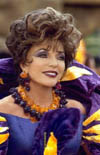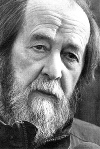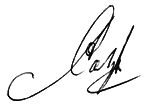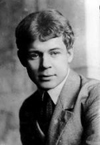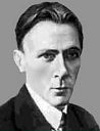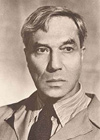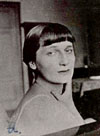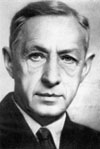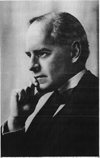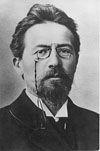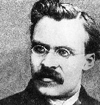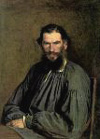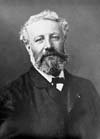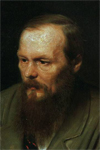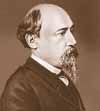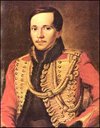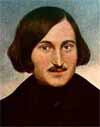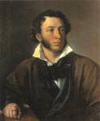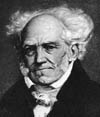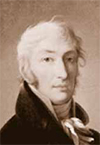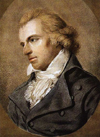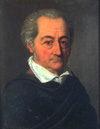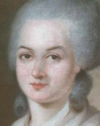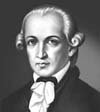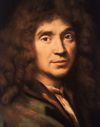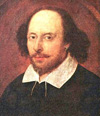Signatures of literary men and philosophers
Iosif Aleksandrovich Brodsky
(1940-1996)
Poet, essayist, playwright, translator. Winner of the 1987 Nobel Prize in literature “for an all-embracing authorship, imbued with clarity of thought and poetic intensity”. Poet Laureate of the United States from 1991 to 1992.
Joan Collins
Born in 1933.
Well-known writer, author of a number of novels about high life and her own autobiography. She was awarded with the Order of the British Empire. The highest popularity came to her from her role in Dynasty soap opera.
Alexander Isayevich Solzhenitsyn
(1918 -2008)
Outstanding Russian writer, publicist, historian, poet and public figure. Winner of the 1970 Nobel Prize in literature “for the ethical force with which he has pursued the indispensable traditions of Russian literature”.
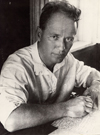

Mikhail Alexandrovich Sholokhov
(1905-1984)
Russian Soviet writer, classic of Soviet literature, author of novel “The Quiet Don”. Winner of the 1965 Nobel Prize in literature “for the artistic power and integrity with which, in his epic of the Don, he has given expression to a historic phase in the life of the Russian people”. He was the only Soviet writer who received the prize with the consent of the USSR authorities.
Sergei Alexandrovich Yesenin
(1895-1925)
Sergei Yesenin is a famous Russian poet. He was born in 1895 in Konstantinovo village in Ryazan Region, in peasant family. He is one of founders of imagism – literary and artistic movement in Russia in the first post-revolutionary years on the basis of the literary practice of futurism.
The best and the most truthful story of his life was instinctively depicted by Yesenin in his numerous autographs. Here he is in full, with his enormous strive for glory, frustration and talent. He was an experimenter both in creation and in his personal life.
Mikhail Afanasyevich Bulgakov
(1891-1940)
Russian writer and playwright. Author of novels, narratives, collected stories, satirical articles and about two dozens of plays. In 1923 he joined the All-Russian Writers’ Union. His most famous work is novel Master and Margarita, the first complete version of which was finished in 1934 and included 37 chapters.
Boris Leonidovich Pasternak
(1890-1960)
Soviet poet, prose writer and translator. Winner of the 1958 Nobel Prize in literature “for his important achievement both in contemporary lyrical poetry and in the field of the great Russian epic tradition”.
Anna Andreyevna Akhmatova
(1889-1966)
Russian poetess, writer, philologist, literary critic and translator. Publicist. In 1962 she was nominated to the Nobel Prize in literature. She was awarded with the Italian Taormina prize (1064). She had an honorary doctoral degree from Oxford University (1965).
Ivan Alexeyevich Bunin
(1870-1953)
Outstanding Russian writer and poet. Honorable academician of the St. Petersburg Academy of Sciences (1909). Winner of the 1933 Nobel Prize in literature “for the strict artistry with which he has carried on the classical Russian traditions in prose writing”. After 1955 he is the most published in the USSR writer of “the first wave”.
John Galsworthy
(1867-1933)
English prose writer and playwright, author of the famous Forsythe Saga. Winner of the 1932 Nobel Prize in literature “for his distinguished art of narration which takes its highest form in The Forsyte Saga”. He left vast heritage as a novelist, short-story writer, playwright and literary critic.
Anton Pavlovich Chekhov
(1860-1904)
Outstanding Russian writer and playwrights; his plays are among the most demanded by theaters all around the world; physician. In 1900 he was elected honorable member of the Russian Academy of Sciences, but in 1902, together with V.G. Korolenko, rejected this title.
Friedrich Nietzsche
(1844-1900)
German philosopher representing irrationalism. He severely attacked religion, culture and moral of his time and developed his own ethical theory. His philosophy produces serious influence on formation of existentialism and post-modernism.
Lev Nikolayevich Tolstoy
(1828-1910)
One of the most prominent Russian writers and thinkers, publicist. He participated in the census of the population of Moscow in 1882 in order to better understand needs of common people and to help them. He participated in the siege of Sevastopol; he was an enlightener; by the end of his life he founded a new religious and moral doctrine – Tolstoyism.
Jules Verne
(1828-1905)
French writer, classic of adventure literature. The works of the writer include 66 novels with unfinished ones, published at the end of the XXth century, as well as more than 20 narratives and short stories and over 30 plays. He was an author of several documentary and scientific works. In 1892 he received the Legion of Honor. The works of Jules Verne promoted considerably development of science fiction as a genre.
Fyodor Mikhailovich Dostoyevsky
(1821-1881)
One of the most prominent Russian writers and thinkers. Together with his brother Mikhail he published Vremya magazine, then – Epokha magazine, combining editorial work with writing. In 1873 he started editing in Grazhdanin newspaper-magazine where later he published his own journalistic, autobiographical, literary critical essays, satirical articles and short stories. Literary heritage of the writer include 9 novels and numerous narratives and short stories.
Nikolai Alexeyevich Nekrasov
(1821-1878)
Russian poet, prose writer, critic, publicist, editor and publisher of Sovremennik and Otechestvennye Zapiski magazines. He is considered to be of one leading poets of Russian revolutionary democracy. The most famous of his works is poem “Who is Happy in Russia?”.
Mikhail Yuryevich Lermontov
(1814-1841)
Russian poet, prose writer, playwright, author of the fist Russian psychological novel “A Hero of Our Time”. “Byronic” figure in Russian poetry. The creative life of the poet was 13 years and was interrupted with his tragic death at the duel.
Nikolai Vasilyevich Gogol
(1809-1852)
Russian writer, prose writer and critic. One of the greatest masters of prose and dramaturgy. He produced decisive influence on strengthening of humanistic and democratic principles in Russian literature.
Alexander Sergeyevich Pushkin
(1799-1837)
Russian poet, playwright and prose writer, reformer of the Russian literary language. Author of critical and historical works. He founded Sovremennik magazine in which works of N.V. Gogol, A.I. Turgenev, P.A. Vyazemsky, V.A. Zhukovsky were published. He is one of the greatest Russian writers, acknowledged and named “genius” when alive.
Arthur Schopenhauer
(1788-1860)
German philosopher and thinker. One of the most famous thinkers of irrationalism, he was attracted by German romanticism, took a great interest in mysticism, admired philosophy of Immanuel Kant and philosophic ideas of the Orient. He called the existing world “the worst possible” and for his works he was nicknamed “pessimism philosopher”. Schopenhauer’s philosophy influenced considerably development of German and world philosophy.
Nikolai Mikhailovich Karamzin
(1766-1826)
Russian historian and historiographer, writer, poet. Honorable member of the St. Petersburg Academy of Sciences (1818). Creator of 12-volume History of the Russian State, one of the first summarizing works in Russian history. He was an editor of Moskovsky Zhurnal and Vestnik Evropy. Outstanding literary figure.
Friedrich Schiller
(1759-1805)
German poet, playwright, aesthetics philosopher, art theorist, historian. Outstanding representative of the Enlightenment epoch in Germany, one of founders of German literature of new times. Author of numerous plays.
Johann Wolfgang von Göthe
(1749-1832)
German poet, playwright, prose writer, thinker, philosopher. The most grandiose work of Johann Wolfgang von Göthe is his tragedy Faust on which he worked during all his life. He is also well-known as a naturalist and mineral collector (goethite is called in his honor).
Olympe de Gouges (Marie Gouze)
(1748-1793)
French writer and journalist, political figure, author of “Declaration of the Rights of Woman and the Female Citizen” written in 1791. Feminist. She was executed by guillotine under false denunciation.
Immanuel Kant
(1724-1804)
Largest philosopher of the Enlightenment, thinker, founder of classic German philosophy, scientist. Among other subjects he studied gnosiology, epistemology, metaphysics and ethics. Immanuel Kant produced enormous influence on development of European spiritual culture.
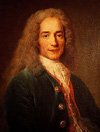

Voltaire
(1694-1778)
Poet, prose writer, historian, publicist, human rights advocate. One of the largest French philosophers-enlighteners of the XVIIIth century. Often he was forced to publish his works anonymously. The cult of Voltaire reached its apogee in France during the Great French Revolution.
Molière (Jean-Baptiste Poquelin)
(1622-1673)
Great comedy playwright of France and New Europe, founder of classic comedy, actor and theater director. Reformer of stage art, founder of the genre of social and everyday-life comedy. Plays by Molière are called-for and topical in our days as well.
William Shakespeare
(1564-1616)
English playwright and poet of the Renaissance epoch, one of the most famous world playwrights, author of comedies, chronicles, tragedies, poems and a sonnet sequence. One of the most well-known English-speaking writers. He was one of co-owners of Globe London Theater, where his plays were staged.


